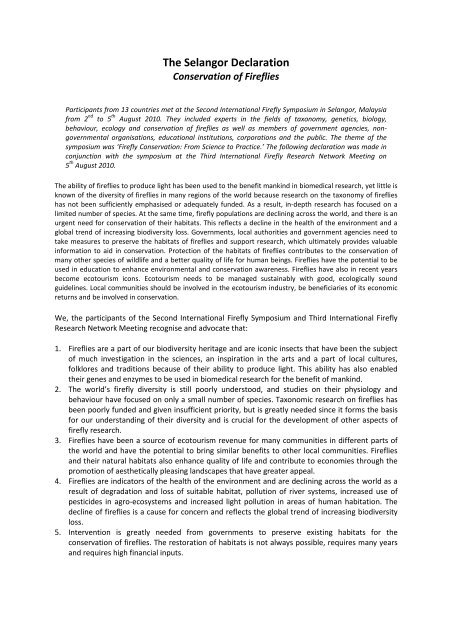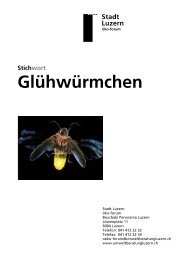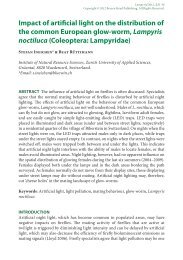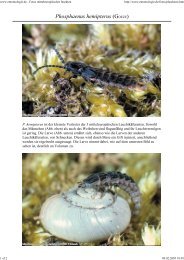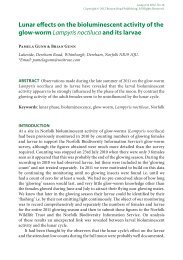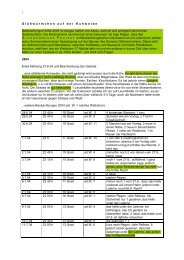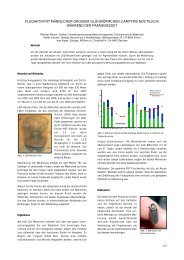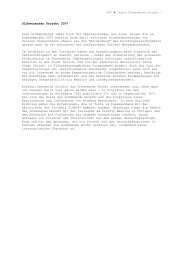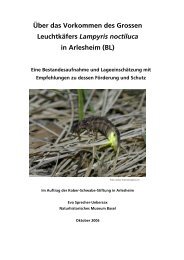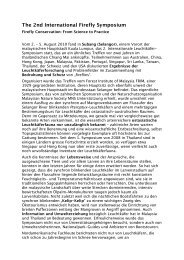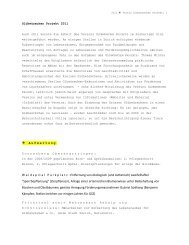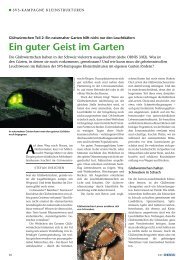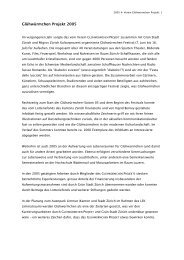The Selangor Declaration on Conservation of Fireflies - The Second ...
The Selangor Declaration on Conservation of Fireflies - The Second ...
The Selangor Declaration on Conservation of Fireflies - The Second ...
You also want an ePaper? Increase the reach of your titles
YUMPU automatically turns print PDFs into web optimized ePapers that Google loves.
<str<strong>on</strong>g>The</str<strong>on</strong>g> <str<strong>on</strong>g>Selangor</str<strong>on</strong>g> <str<strong>on</strong>g>Declarati<strong>on</strong></str<strong>on</strong>g><br />
C<strong>on</strong>servati<strong>on</strong> <strong>of</strong> <strong>Fireflies</strong><br />
Participants from 13 countries met at the Sec<strong>on</strong>d Internati<strong>on</strong>al Firefly Symposium in <str<strong>on</strong>g>Selangor</str<strong>on</strong>g>, Malaysia<br />
from 2 nd to 5 th August 2010. <str<strong>on</strong>g>The</str<strong>on</strong>g>y included experts in the fields <strong>of</strong> tax<strong>on</strong>omy, genetics, biology,<br />
behaviour, ecology and c<strong>on</strong>servati<strong>on</strong> <strong>of</strong> fireflies as well as members <strong>of</strong> government agencies, n<strong>on</strong>governmental<br />
organisati<strong>on</strong>s, educati<strong>on</strong>al instituti<strong>on</strong>s, corporati<strong>on</strong>s and the public. <str<strong>on</strong>g>The</str<strong>on</strong>g> theme <strong>of</strong> the<br />
symposium was ‘Firefly C<strong>on</strong>servati<strong>on</strong>: From Science to Practice.’ <str<strong>on</strong>g>The</str<strong>on</strong>g> following declarati<strong>on</strong> was made in<br />
c<strong>on</strong>juncti<strong>on</strong> with the symposium at the Third Internati<strong>on</strong>al Firefly Research Network Meeting <strong>on</strong><br />
5 th August 2010.<br />
<str<strong>on</strong>g>The</str<strong>on</strong>g> ability <strong>of</strong> fireflies to produce light has been used to the benefit mankind in biomedical research, yet little is<br />
known <strong>of</strong> the diversity <strong>of</strong> fireflies in many regi<strong>on</strong>s <strong>of</strong> the world because research <strong>on</strong> the tax<strong>on</strong>omy <strong>of</strong> fireflies<br />
has not been sufficiently emphasised or adequately funded. As a result, in-depth research has focused <strong>on</strong> a<br />
limited number <strong>of</strong> species. At the same time, firefly populati<strong>on</strong>s are declining across the world, and there is an<br />
urgent need for c<strong>on</strong>servati<strong>on</strong> <strong>of</strong> their habitats. This reflects a decline in the health <strong>of</strong> the envir<strong>on</strong>ment and a<br />
global trend <strong>of</strong> increasing biodiversity loss. Governments, local authorities and government agencies need to<br />
take measures to preserve the habitats <strong>of</strong> fireflies and support research, which ultimately provides valuable<br />
informati<strong>on</strong> to aid in c<strong>on</strong>servati<strong>on</strong>. Protecti<strong>on</strong> <strong>of</strong> the habitats <strong>of</strong> fireflies c<strong>on</strong>tributes to the c<strong>on</strong>servati<strong>on</strong> <strong>of</strong><br />
many other species <strong>of</strong> wildlife and a better quality <strong>of</strong> life for human beings. <strong>Fireflies</strong> have the potential to be<br />
used in educati<strong>on</strong> to enhance envir<strong>on</strong>mental and c<strong>on</strong>servati<strong>on</strong> awareness. <strong>Fireflies</strong> have also in recent years<br />
become ecotourism ic<strong>on</strong>s. Ecotourism needs to be managed sustainably with good, ecologically sound<br />
guidelines. Local communities should be involved in the ecotourism industry, be beneficiaries <strong>of</strong> its ec<strong>on</strong>omic<br />
returns and be involved in c<strong>on</strong>servati<strong>on</strong>.<br />
We, the participants <strong>of</strong> the Sec<strong>on</strong>d Internati<strong>on</strong>al Firefly Symposium and Third Internati<strong>on</strong>al Firefly<br />
Research Network Meeting recognise and advocate that:<br />
1. <strong>Fireflies</strong> are a part <strong>of</strong> our biodiversity heritage and are ic<strong>on</strong>ic insects that have been the subject<br />
<strong>of</strong> much investigati<strong>on</strong> in the sciences, an inspirati<strong>on</strong> in the arts and a part <strong>of</strong> local cultures,<br />
folklores and traditi<strong>on</strong>s because <strong>of</strong> their ability to produce light. This ability has also enabled<br />
their genes and enzymes to be used in biomedical research for the benefit <strong>of</strong> mankind.<br />
2. <str<strong>on</strong>g>The</str<strong>on</strong>g> world’s firefly diversity is still poorly understood, and studies <strong>on</strong> their physiology and<br />
behaviour have focused <strong>on</strong> <strong>on</strong>ly a small number <strong>of</strong> species. Tax<strong>on</strong>omic research <strong>on</strong> fireflies has<br />
been poorly funded and given insufficient priority, but is greatly needed since it forms the basis<br />
for our understanding <strong>of</strong> their diversity and is crucial for the development <strong>of</strong> other aspects <strong>of</strong><br />
firefly research.<br />
3. <strong>Fireflies</strong> have been a source <strong>of</strong> ecotourism revenue for many communities in different parts <strong>of</strong><br />
the world and have the potential to bring similar benefits to other local communities. <strong>Fireflies</strong><br />
and their natural habitats also enhance quality <strong>of</strong> life and c<strong>on</strong>tribute to ec<strong>on</strong>omies through the<br />
promoti<strong>on</strong> <strong>of</strong> aesthetically pleasing landscapes that have greater appeal.<br />
4. <strong>Fireflies</strong> are indicators <strong>of</strong> the health <strong>of</strong> the envir<strong>on</strong>ment and are declining across the world as a<br />
result <strong>of</strong> degradati<strong>on</strong> and loss <strong>of</strong> suitable habitat, polluti<strong>on</strong> <strong>of</strong> river systems, increased use <strong>of</strong><br />
pesticides in agro-ecosystems and increased light polluti<strong>on</strong> in areas <strong>of</strong> human habitati<strong>on</strong>. <str<strong>on</strong>g>The</str<strong>on</strong>g><br />
decline <strong>of</strong> fireflies is a cause for c<strong>on</strong>cern and reflects the global trend <strong>of</strong> increasing biodiversity<br />
loss.<br />
5. Interventi<strong>on</strong> is greatly needed from governments to preserve existing habitats for the<br />
c<strong>on</strong>servati<strong>on</strong> <strong>of</strong> fireflies. <str<strong>on</strong>g>The</str<strong>on</strong>g> restorati<strong>on</strong> <strong>of</strong> habitats is not always possible, requires many years<br />
and requires high financial inputs.
6. <str<strong>on</strong>g>The</str<strong>on</strong>g> habitats <strong>of</strong> fireflies are a refuge for many forms <strong>of</strong> wildlife including mammals, birds,<br />
reptiles, amphibians and numerous species <strong>of</strong> invertebrates. C<strong>on</strong>servati<strong>on</strong> <strong>of</strong> these habitats,<br />
therefore, has the potential to c<strong>on</strong>serve a wide range <strong>of</strong> fauna.<br />
We urge governments, local authorities and government agencies worldwide to take decisive and<br />
c<strong>on</strong>crete acti<strong>on</strong> at the regi<strong>on</strong>al, nati<strong>on</strong>al and local level to:<br />
1. First and foremost, protect the habitats <strong>of</strong> fireflies so as to preserve these ic<strong>on</strong>ic creatures and<br />
other fauna for the enjoyment <strong>of</strong> future generati<strong>on</strong>s.<br />
2. Undertake rehabilitati<strong>on</strong> <strong>of</strong> degraded firefly habitats to enable gradual recovery <strong>of</strong> populati<strong>on</strong>s.<br />
3. Develop management plans for firefly ecotourism sites that enable them to be managed<br />
sustainably and in a manner that is ecologically sound.<br />
4. Promote the involvement <strong>of</strong> local communities in firefly ecotourism and ensure they are<br />
beneficiaries <strong>of</strong> the ec<strong>on</strong>omic returns.<br />
5. Ensure local communities are equipped with knowledge <strong>of</strong> the habitats, life cycle and ecology <strong>of</strong><br />
fireflies and are fully involved in c<strong>on</strong>servati<strong>on</strong> efforts.<br />
6. Promote educati<strong>on</strong> <strong>on</strong> firefly c<strong>on</strong>servati<strong>on</strong> at the level <strong>of</strong> schools, and create awareness am<strong>on</strong>g<br />
the public <strong>on</strong> the natural history and c<strong>on</strong>servati<strong>on</strong> <strong>of</strong> fireflies.<br />
We str<strong>on</strong>gly recommend that governments, local authorities, agencies and corporati<strong>on</strong>s support the<br />
allocati<strong>on</strong> <strong>of</strong> human and financial resources for:<br />
1. Inventory and documentati<strong>on</strong> <strong>of</strong> firefly species in highly diverse, under-researched areas such as<br />
Asia, Africa and tropical America.<br />
2. Tax<strong>on</strong>omic research <strong>on</strong> fireflies at both the morphological and molecular level, which forms a<br />
basis for our understanding <strong>of</strong> the world’s poorly-documented firefly fauna.<br />
3. Research <strong>on</strong> fireflies that provides key informati<strong>on</strong> <strong>on</strong> all aspects <strong>of</strong> their classificati<strong>on</strong>, genetics,<br />
biology, ecology, behaviour, physiology, c<strong>on</strong>servati<strong>on</strong> and utilisati<strong>on</strong> in biomedical research.<br />
4. <str<strong>on</strong>g>The</str<strong>on</strong>g> development and applicati<strong>on</strong> <strong>of</strong> low envir<strong>on</strong>mental impact techniques that minimise<br />
degradati<strong>on</strong> <strong>of</strong> firefly habitats yet enable the development <strong>of</strong> infrastructure for the benefit <strong>of</strong><br />
human communities.<br />
5. Collaborati<strong>on</strong> and the sharing <strong>of</strong> research findings am<strong>on</strong>g researchers, and communicati<strong>on</strong> <strong>of</strong><br />
research findings to government authorities and agencies to aid the cause <strong>of</strong> firefly<br />
c<strong>on</strong>servati<strong>on</strong>.<br />
6. Educati<strong>on</strong> <strong>on</strong> the ecology and c<strong>on</strong>servati<strong>on</strong> <strong>of</strong> fireflies at the level <strong>of</strong> schools, local communities<br />
and the public, as a tool for inculcating envir<strong>on</strong>mental resp<strong>on</strong>sibility.<br />
Dated this 5 th day <strong>of</strong> August, 2010, by<br />
the participants <strong>of</strong> the Sec<strong>on</strong>d Internati<strong>on</strong>al Firefly Symposium<br />
and Third Internati<strong>on</strong>al Firefly Research Network Meeting<br />
in Subang, <str<strong>on</strong>g>Selangor</str<strong>on</strong>g>, Malaysia<br />
For further informati<strong>on</strong> c<strong>on</strong>tact:<br />
<str<strong>on</strong>g>The</str<strong>on</strong>g> Secretariat, Internati<strong>on</strong>al Firefly Symposium 2010<br />
Entomology Branch, Tropical Forest Biodiversity Centre<br />
Forest Research Institute Malaysia<br />
52109 Kep<strong>on</strong>g, <str<strong>on</strong>g>Selangor</str<strong>on</strong>g><br />
Malaysia<br />
Tel. +603-6279 7112<br />
Email: ifs2010@frim.gov.my<br />
2


